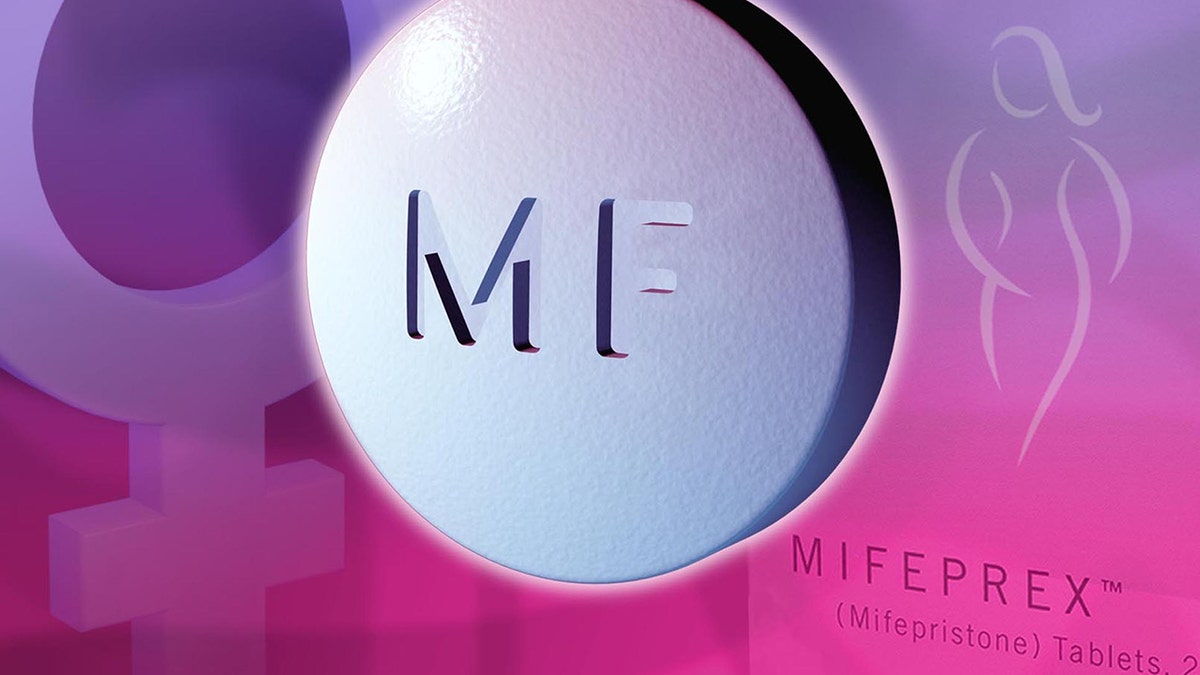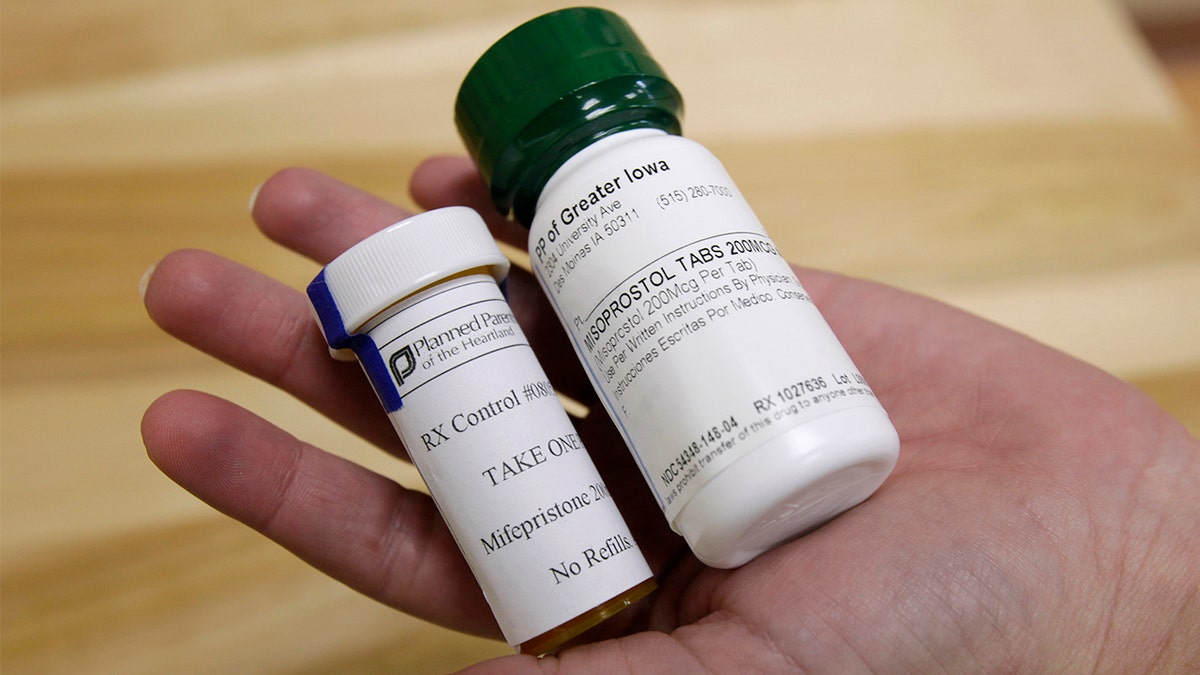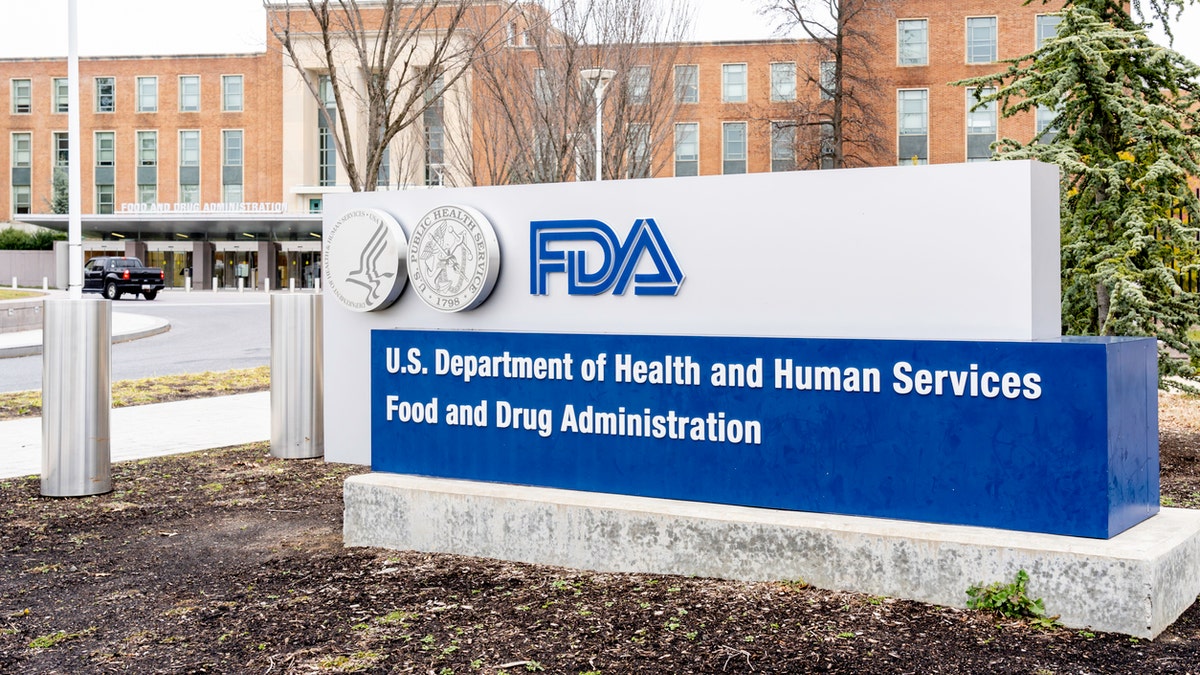Fox News Flash top headlines for January 11
Fox News Flash top headlines are here. Check out what's clicking on Foxnews.com.
A new study claims to have found a "significant" gap in the federal government's reporting on complications from the abortion pill known as mifepristone – raising questions about how informed officials were when they deregulated its use in December.
Last month, the Food and Drug Administration cited its adverse event (AE) reporting data in justifying its decision to remove the drug's in-person requirement. "FDA determined that the data support modification … to reduce burden on patient access and the health care delivery system and to ensure the benefits of the product outweigh the risks," the agency said.

A Mifeprex (mifepristone) pill, also known as the RU-486 abortion pill. (Tribune News Service via Getty Images)
But a group of physicians from the American Association of Pro-Life Obstetricians and Gynecologists (AAPLOG) is claiming that available data shows a "significant discrepancy" between FDA data and reporting from sources that inform those numbers.
Determining the FDA's accuracy is relatively difficult as it requires comparing the agency's own data with those of private entities like Planned Parenthood. The FDA relies on AE reporting from Danco Laboratories, which manufactures the abortion pill and uses AE's reported by Planned Parenthood. Danco did not respond to Fox News Digital's request for comment.
Dr. Donna Harrison, a co-author and CEO of AAPLOG, told Fox News Digital that 2009-2010 offered the best opportunity for comparing data sources and that the "situation which allows a direct comparison does not exist outside of 2009 [and] 2010."
Researchers were able to compare 2009-2010 data from the FDA's online reporting system, actual AE reports obtained via the Freedom of Information Act, and those uncovered by a previous study by Kelly Cleland and others utilizing data from Planned Parenthood.
"There are significant discrepancies in the number of AEs and total AERs reported for 2009 and 2010 mifepristone abortions identified by Planned Parenthood as reported by Cleland, those in FAERS [FDA Adverse Event Reporting System], and those provided by FOIA, impugning the reliability of FAERS to evaluate the safety or efficacy of mifepristone abortions at a time when the FDA is under pressure to eliminate REMS [Risk Evaluation and Mitigation Strategy] on mifepristone," the authors concluded.

Bottles of the abortion-inducing drug RU-486 at a clinic in Des Moines, Iowa. On Tuesday, April 13, 2021, the acting head of the Food and Drug Administration said women seeking an abortion pill will not be required to visit a doctor's office or clinic during the COVID-19 pandemic, in the latest reversal in ongoing legal battles over use of the medication. (AP Photo/Charlie Neibergall) (AP Photo/Charlie Neibergall)
But the American College of Obstetricians and Gynecologists (ACOG), which has backed deregulating mifepristone's use, criticized the study in a statement to Fox News.
"Decades of rigorous scientific data conducted separate from government mandated reporting measurements indicate that medication abortion is safe and effective, with risks similar to or less than other common medical procedures," said ACOG's Dr. Nisha Verma.
CHEMICAL ABORTIONS SAW 500% INCREASE IN RATE OF ER VISITS FROM 2002-2015: STUDY
"ACOG supports the FDA’s recent removal of specific restrictions on mifepristone, a decision that was based on careful review of the extensive data. This study contains potential methodological flaws and likely inappropriately drawn conclusions that contradict the decades of science and practice demonstrating the safety of medication abortion in the US."
ACOG did not respond when asked for specifics on potential flaws in the study. Dr. Mitchell Creinin, who co-authored the Cleland study, cautioned against gleaning too much from the study.
"FAERS is a passive reporting system primarily meant to catch rare outcomes," said Creinin, who currently serves as director of family planning at UC-Davis.
"With such large numbers of medical abortions, small differences in numbers means nothing. FAERS did not identify any volume of unexpected outcomes, which is really the main goal of reviewing that data source. Prospective studies with known numerators and denominators are the most accurate sources of data. The findings from the Cleland study are very much in line with the rest of the peer-reviewed medical literature. For this and other reasons, I am confident that even if small differences exist, they are not massive as the paper attempts to suggest."
In a statement to Fox News, the FDA said: "In general, the FDA does not comment on specific studies."
It added that "[a]s with all drugs, FDA continues to closely monitor the postmarketing safety data on mifepristone for the medical termination of pregnancy. FDA’s recent review of the postmarketing data for Mifeprex and its approved generic, as of December 2021, indicates there have not been any new safety concerns with the use of mifepristone for medical termination of pregnancy through 70 days gestation."
FDA'S REMOVAL OF RESTRICTIONS ON TELEMEDICINE ABORTIONS PROMPTS CELEBRATION, SAFETY CONCERNS
"We note that for all drug products, holders of approved new drug applications and abbreviated new drug applications are required to report all adverse events, including serious adverse events, to the FDA in accordance with the requirements in FDA’s regulations (see 21 CFR 314.80, 21 CFR 314.81, and 21 CFR 314.98). Reporting to the agency's MedWatch program by health care professionals and patients is voluntary. Certified prescribers in the Mifepristone REMS Program are required to report any cases of death to the application holders."

(istock)
The agency said that "[a]s with all drugs, FDA continues to closely monitor the postmarketing safety data on mifepristone for the medical termination of pregnancy. FDA’s recent review of the postmarketing data for Mifeprex and its approved generic, as of December 2021, indicates there have not been any new safety concerns with the use of mifepristone for medical termination of pregnancy through 70 days gestation."
This isn't the first time the agency's data has come under scrutiny. Critics of chemical or medicinal abortion contend that both U.S. data and the FDA's knowledge of so-called "adverse incidents" is woefully inadequate.
The FDA's adverse event reporting, for example, only covers deaths and relies on reporting from manufacturers. Its website recognizes several factors, like timing of marketing, that might influence reporting as well.
CLICK HERE TO GET THE FOX NEWS APP
A study from the anti-abortion Charlotte Lozier Institute (CLI) attempted to analyze complications by combing through Medicaid data. The authors reported that"abortion-related" ER visits were higher and increased at a faster rate (per 1,000 abortions) for the chemical version than they did after surgical procedures. More specifically, chemical abortion visit rates increased by 507% (8.5 to 51.7 per 1,000) between 2002 and 2015. During that same period, the surgical abortion visit rate increased 315%.
CLI's study also aligns with one from Finland, which has a single-payer system that makes tracking the issue easier. That 2009 study, which used a cohort of more than 42,000 women, found that chemical abortions saw a four-fold higher rate of adverse events compared to surgical. It concluded, however, that both forms are generally safe.












































